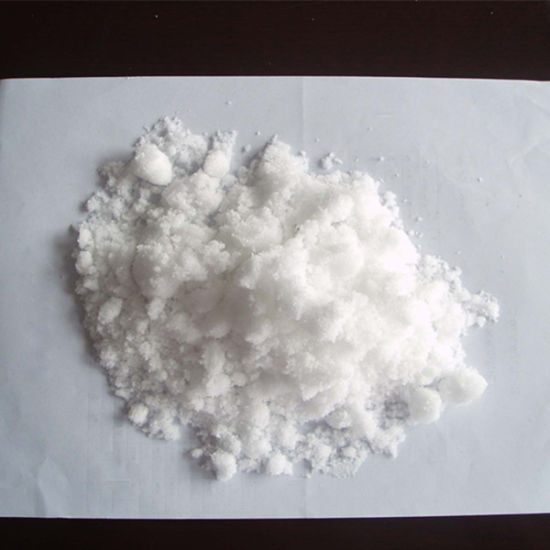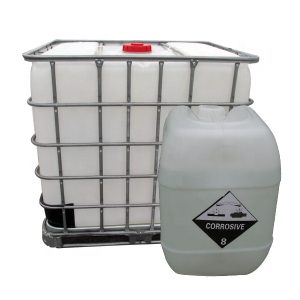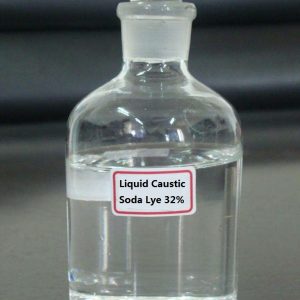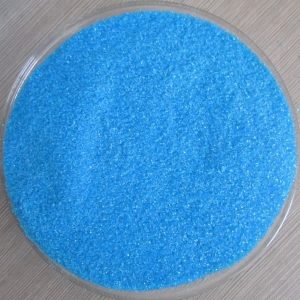Description
Okay, here’s an article based on the topic “Zinc Sulfate Monohydrate 98%,” aiming for a general audience while also including some technical details:
Zinc Sulfate Monohydrate 98%: A Versatile Compound with Wide-Ranging Applications
Zinc sulfate monohydrate, with a purity of 98%, might not be a household name, but it’s a compound that plays a crucial role in various industries and even in our health. This chemical compound, essentially a zinc salt with one water molecule bound to it, is more than just a collection of elements; it’s a powerful and versatile substance used in agriculture, pharmaceuticals, animal feed, and beyond.
What Exactly is Zinc Sulfate Monohydrate 98%?
Let’s break it down. “Zinc sulfate” signifies a salt formed from zinc and sulfate ions. The “monohydrate” portion indicates that each molecule of zinc sulfate is associated with one molecule of water (H₂O). The “98%” refers to the purity of the compound – meaning that at least 98% of the substance is actually zinc sulfate monohydrate, with the remaining 2% likely consisting of trace impurities.
Chemically, it’s represented as ZnSO₄·H₂O. This crystalline solid typically appears as a white, odorless powder or granule. Its high purity of 98% is essential for applications where precise control over the chemical composition is required.
Key Applications and Why They Matter:
Agriculture: Crop Vitality and Soil Health
One of the largest uses of zinc sulfate monohydrate is in agriculture. Zinc is a micronutrient essential for plant growth, playing a critical role in enzyme function, chlorophyll production, and overall plant health. In soils deficient in zinc, crops can suffer from stunted growth, reduced yields, and other deficiencies. Applying zinc sulfate monohydrate as a fertilizer or soil amendment addresses these issues, leading to healthier plants and more abundant harvests. It’s especially important in regions with alkaline soils or where zinc is readily bound and unavailable to plants.
Animal Feed: Promoting Healthy Livestock
Just like plants, animals also require zinc for optimal health and growth. Zinc sulfate monohydrate is a common additive in animal feed, particularly for poultry, swine, and cattle. It helps prevent zinc deficiency, which can lead to problems like poor immune function, reduced growth rates, and reproductive issues. The controlled delivery of zinc through feed additives ensures that livestock receive the necessary micronutrients for healthy development.
Pharmaceuticals: Addressing Zinc Deficiencies in Humans
Zinc is vital for human health, playing a crucial part in immune function, wound healing, and cell growth. Zinc sulfate monohydrate is sometimes used as a dietary supplement to address zinc deficiencies. It’s also used in some topical preparations to help with wound healing and specific skin conditions. However, it’s important to note that zinc supplementation should be done under the guidance of a healthcare professional due to the potential for imbalances and interactions with other medications.
Industrial Applications:
Beyond the areas mentioned above, zinc sulfate monohydrate has industrial applications. It’s utilized as a mordant in dyeing and printing textiles, where it facilitates the bonding of dye to fabrics. It’s also used in the production of other zinc compounds.
Important Considerations:
Safety: While essential, zinc sulfate monohydrate should be handled with care. It can be irritating to the skin and eyes. Proper protective measures, such as wearing gloves and safety glasses, are advisable. Ingestion of large amounts of zinc sulfate can be harmful.
Quality Control: The 98% purity is crucial for many applications. Manufacturers adhere to strict quality control measures to ensure the consistency and efficacy of the product.
Dosage: When used as a human supplement, zinc sulfate monohydrate dosage should be carefully considered and individualized by a healthcare professional.
Environmental Impact: While necessary for plant growth, the careful application of zinc sulfate in agriculture is crucial to avoid excessive build-up in soil or leaching into waterways.
Conclusion:
Zinc sulfate monohydrate 98% is a workhorse compound with applications spanning agriculture, animal husbandry, pharmaceuticals, and various industries. Its ability to deliver zinc, an essential micronutrient, makes it indispensable for both plant and animal health. While the average person may not be directly familiar with its name, this versatile chemical plays a significant role in the food we eat, the health of our livestock, and even in some medicines we might use. This highlights the importance of understanding the fundamental building blocks that underpin modern life.






Reviews
There are no reviews yet.